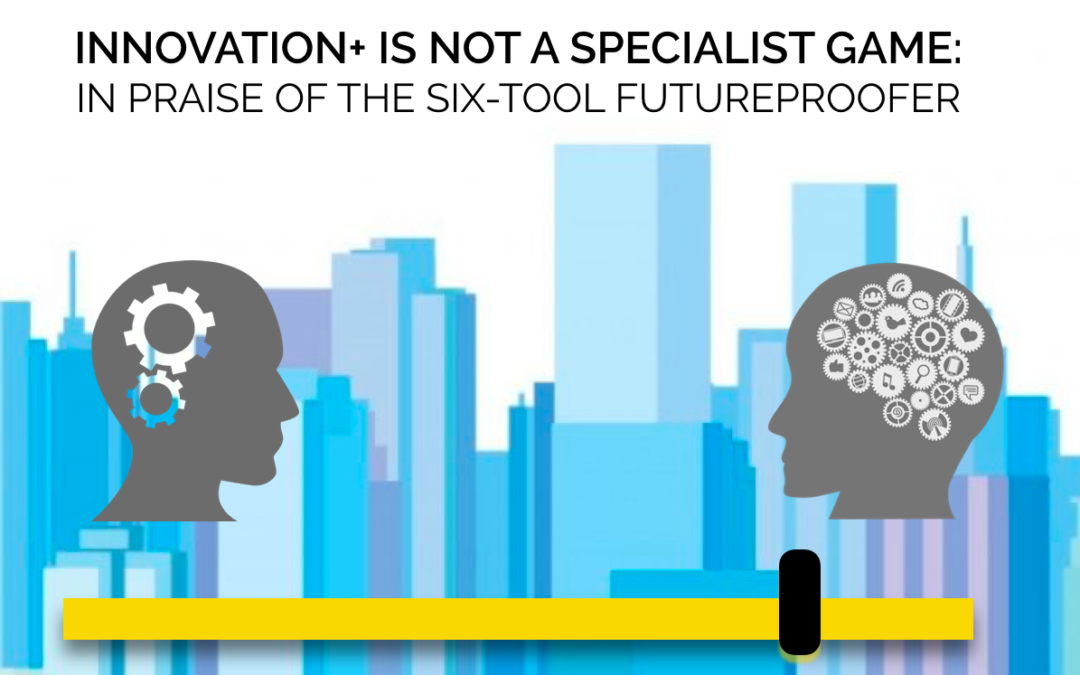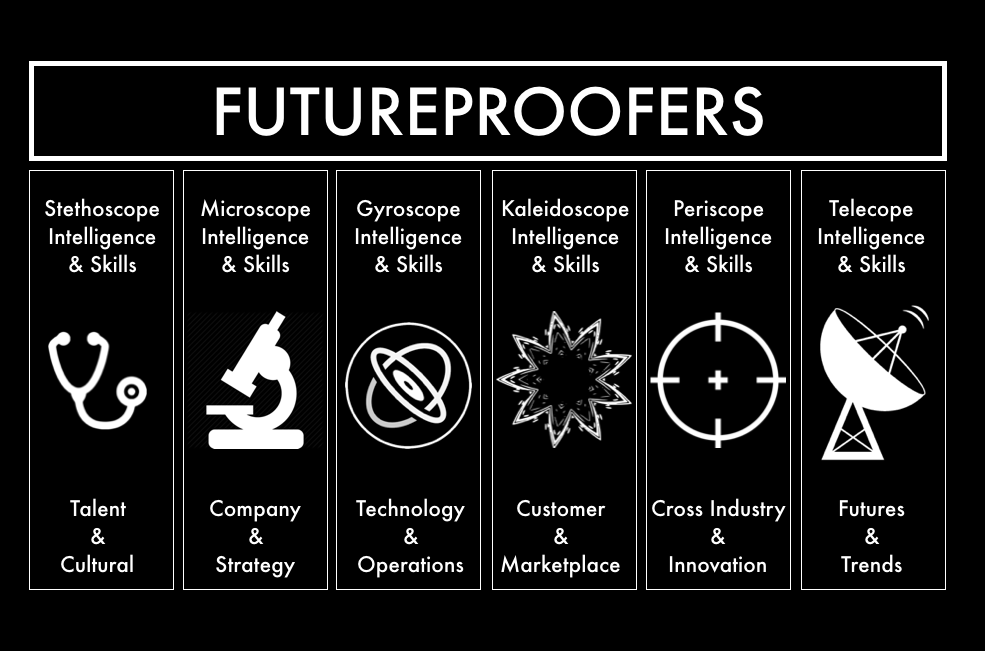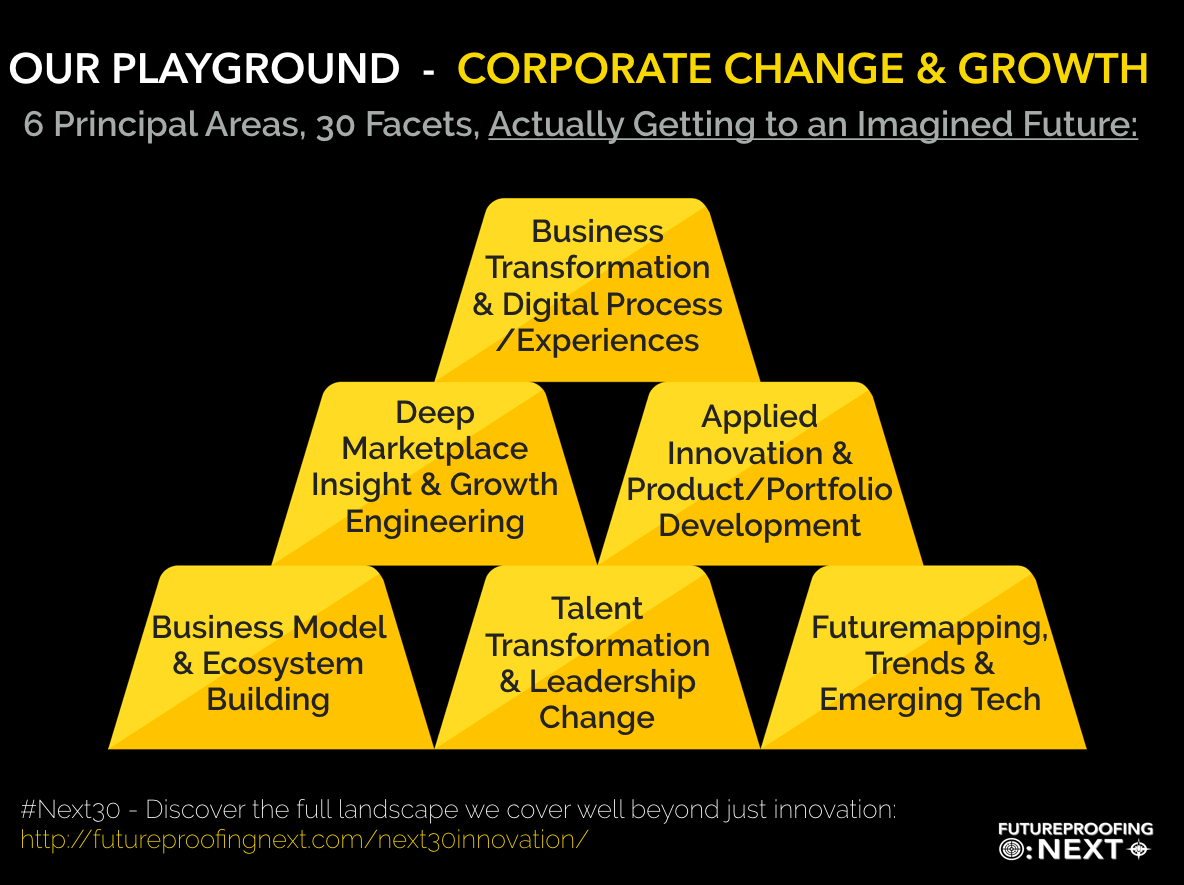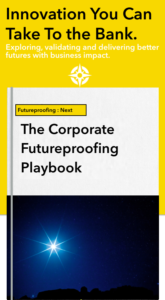The square off – SPECIALISTS vs. generalists
I’m about to confess a position on the future of strategy, work and change that isn’t universally accepted. In fact, from the results of our Corporate Innovation Playbook study, it was the only sliding poll question we fielded that landed smack dab in the middle – respondents equally split on the merits of each side of the argument. The crux of the debate, one we even hold aloft at times in our own minds, “is the future to be ruled by the generalist or specialist?” We’ve now seen enough evidence – we are hardlining in the generalist camp.

In Support of Specialism
It’s not that we haven’t seen over the last 50 years signs that indicate having a focus is valuable. One of my favourite authors Malcolm Gladwell, preaches the need to invest 10,000 hours to perfect your specific craft in his book Outliers. By virtue of time commitment alone, that constitutes being a specialist.
Empirically, we see examples in real life. Surgeons get paid better than general practitioners. MBAs get compensated more than students from general arts disciplines. You may be out of shape and as slow as molasses, but by god if you know how to swat home runs, you’ll find a hefty professional baseball contract somewhere.
Ed Sullivan, David Letterman, Jay Leno, Howard Stern – until recently, most talk show hosts for the last half-century couldn’t sing, couldn’t dance, couldn’t act, and didn’t necessarily have model good looks, but if you could tell a joke – well, you could have made a fortune on late night or radio.
Moving beyond personal to business examples, the rage of business growth is the lean startup; its founding father Eric Ries proclaims “when in doubt, simpify.” Brand zealots preach the importance and discipline of focus. Startups should have a focus. Technology needs to be focused. Career tracks can’t be winding, they need a straight arrow focus.
My former company P&G preached innovation focus as one of its core disciplines. One of the top-selling self-help books over the last few years suggests if we can just grit it out in pursuit of a focused goal, you will triumph. And Angela Duckworth isn’t alone. Many of the top sellers on the business book charts align on a similar message. Focus. Specialize. Habitualize. Do one thing, to the sacrifice of balance.
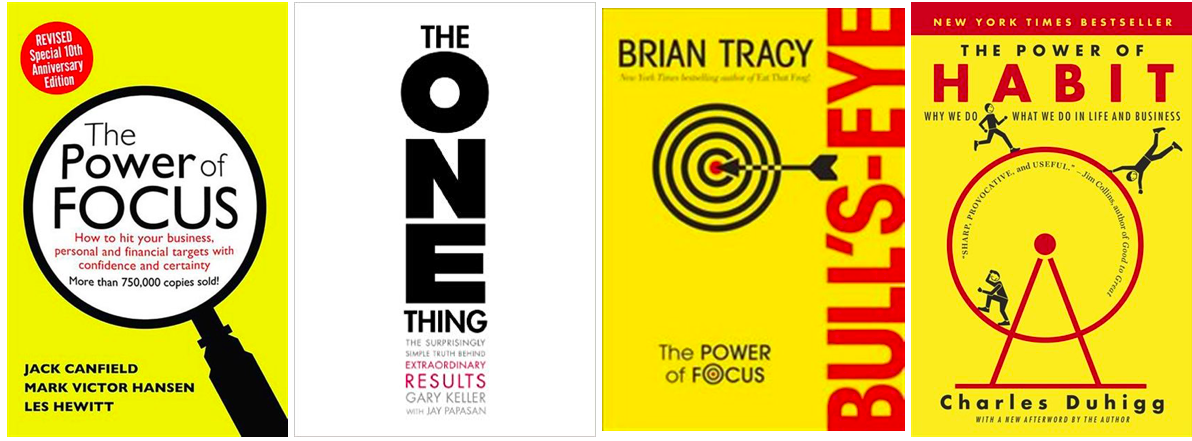
But what if all that we have been taught about regimentation and choiceful focus in life, business and work is plain wrong?
A New Cultural Movement Rising…
The winds and tides are changing. Let me go wide before I go deep. I’ll stake out a claim first before I do – in the future, generalist change agents will win, whereas specialists, even future-minded ones, will increasingly become the enemy of smart change, profitable growth and successful innovation. Now let’s paint the wide brush first.
Consider the environment – as troubling as it is to recognize one quarter of the world’s species under threat of extinction from climate change, there is one animal where climate change represents an opportunity. In many parts of the world beyond its North American natural habitat, this ursine’s adaptability and ability to learn and harness a wide range of skills had led to its flourishing – the versatile raccoon.
Similar to who we believe are currently successful in business, this omnivorous bandit can cope with any of the future diverse environmental and climatic challenges that gets thrown at them, and thrive because of its all-round skill set. It’s not the fastest, not the biggest, not the meanest, not the absolute smartest (but we are impressed with its ability to pry open garbage cans) – but it does all of these things really well, and it’s habitat is expanding. Advantage – Generalist.
Consider entertainment – it used to be quite rare to have performers cross over genres. TV stars didn’t make movies. Musicians couldn’t act. Stage performers didn’t lower themselves to be on the boob tube. In fact, there is a prestigious group of only 15 performers in the history of Hollywood who have won a rare generalist EGOT in their career – an Emmy for TV, a Grammy for music, an Oscar for film and a Tony award for stage. The multi-talent John Legend was the last one to do it in 2018.
Nowadays, you have a rising generation of performers like Donald Glover who excel in nearly all media, cultivating stage names like Childish Gambino and mcDJ to operate in other cultural arenas. You also now have late night talk show hosts who not only can be funny, but can dance, act and sing, for both broadcast and digital audiences (Jimmy Fallon and James Corden to name but two). Advantage – Generalist.
Consider sport – athletics are being turned upside down with the multi-talented nature of their star perfomers. In American football, the unidimensional Tom Bradys and Peyton Mannings of the gridiron are ceding way to double threats – Lamar Jackson and Patrick Mahomes – as able to beat you with their legs as they are with their arms.
In the basketball world, all-star hoopsters like Joel Embiid of the 76ers and Pascal Siakam of the Raptors focused on other sporting activities well into their youth, not turning to basketball until well into their teens. Championship-winning golfer Brooks Koepka looks more comfortable in a body building magazine than on a links course. in a recent NFL draft, 30 out of the 32 first round draft choices were multi-sport athletes, In fact, nearly half of Olympic and Senior World Championship medalists at one point changed sports. Advantage- Generalist.
A Changing Context
Whether you consider the above environments that are tangential to business, or the direct influences buffeting how organizations now need to operate, there really are five consistent factors steering the marketplace, the workplace and culture-at-large toward generalism:
i) the world has sped up and is accelerating faster – in a world where the value and half-life of a work skill can be measured in months not years, it helps to learn and fundamentally relearn different facets across a broadspan of professional interests. Within this era of hyper-change, one of the buzzwords of HR practitioners is “redeployment”. And generalists simply redeploy better.
ii) the world has got more complex – the challenges that confront corporate personnel are a lot more nuanced than a generation ago. Being a generalist allows executives & staff to register the “big picture” more easily and be able to flex more skill sets to combat and deal with these more sophisticated challenges.
In a recent survey we conducted on futureproofed leaders, the top skills, traits and competencies of tomorrow’s leaders – #1 adaptive intelligence, #2 – experimentation and #3 – purpose-driven were heavily slanted generalist (see visual below). In a volatile and chaotic world, generalists are the sly foxes, specialists are the myopic hedgehogs.
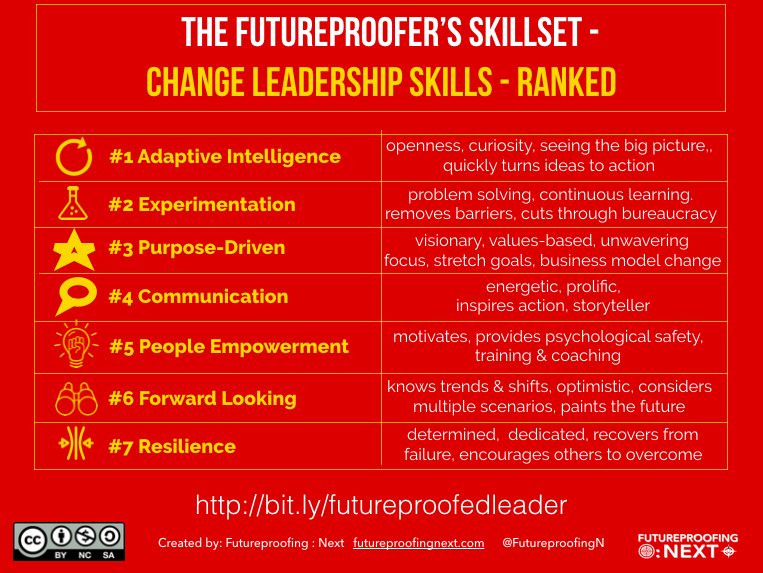
iii) the world has become more technified – in an operating environment where technology is playing a bigger & bigger role and atomizing different functions of what we used to consider “a job”, it is the roles that are non-automatable and general in focus that carry a much larger premium.
As the division of labour across every industry, crosses over being more than half-automated in the next 5 years, the skills of the future will be generalist skills. As evidenced by the top ten listing of skills rising over the next few years according to the World Economic Forum, fully 9 out of 10 of them would be considered generalist in orientation.
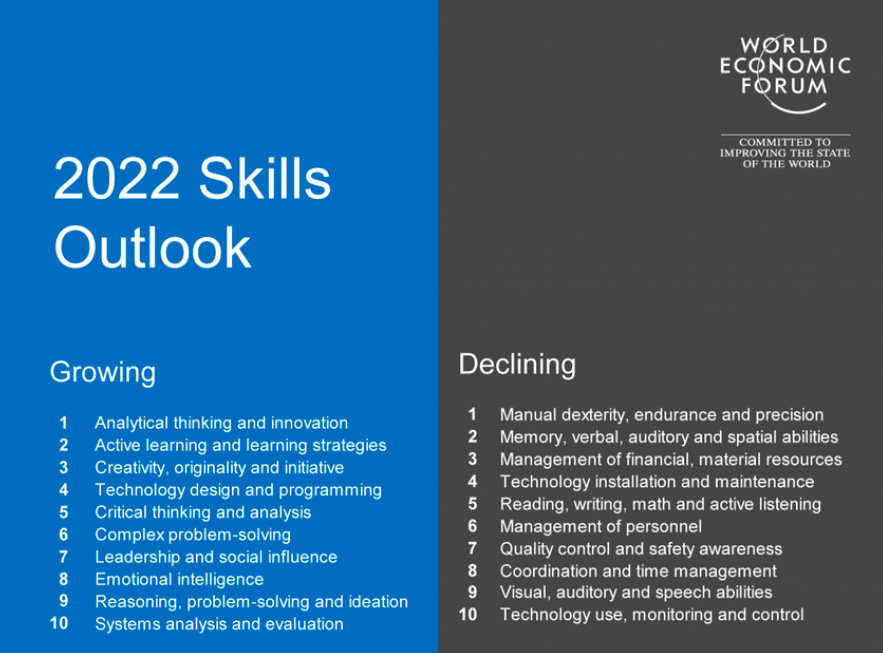
iv) the world has become much more unpredictable – generalists are better at predicting the outcome of issues and seeing possible futures, even outside of their specific areas of expertise.
Professor Phillip Fetlock, who has studied the generalist/specialist spectrum over the last 20 years, suggests for forecasting “it is better to turn to those like the generalist over the single-minded because “those who know many little things, draw from an eclectic array of traditions, and accept ambiguity and contradictions.”
v) numbers alone don’t explain it, exceptional performance does – in most large companies and professional environments, the majority of people have been recruited in through very prescriptive job needs and requirements. How many times have you seen an entry level job posting ask for a healthy sampling of generalism with a side heap of broad mindedness. Ummm … likely never. Even when you look at a consultancy like McKinsey where you might think consultants who dance across different industries might need some generalist orientation, you get a sense that anybody showing a flare for generalism gets weeded out early in the process.
When you peel back the generalist-specialist spectrum on impact and the top 10% of elite business performance, you truly see the power in breadth in business. In the high stakes world of investment banking, specialists received 36% smaller bonuses. Generalism is one of the reasons we surmise that contrary to media coverage, the most successful entrepreneurs happen to be in their 40s and 50s. Fifteen of the top twenty scientists in the history of the world turned out to be generalists.


RANGE – WHY Generalists TRIUMPH in an increasingly specialized world
I’ll admit a little bit of confirmation & recency bias when I purchased David Epstein’s book Range recently. I was already simmering about generalism in the innovation industry (or the lack of it).
Part of my change manifesto within our own book writing (Futureprofong Next due out in Feb’20) is how the practice of innovation has become so insular and blinded to its complexity. When I noticed Epstein’s book climbing the non-fiction best seller charts last year, I found a beacon of generalist clairvoyance.
Although the writing suffers from almost too much research on the subject, the argument is exciting, validating and extraordinarily well supported – spreading your knowledge across multiple domains is the key to your success, and how to achieve it.
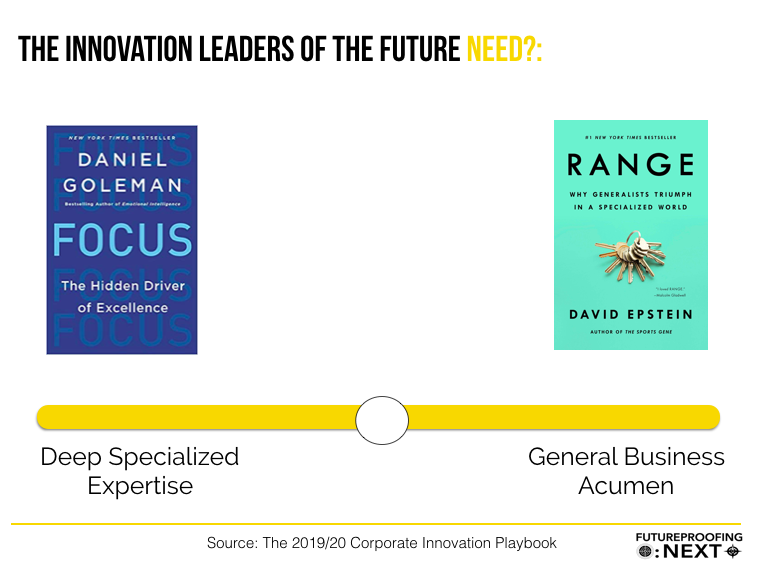
Some of Epstein’s findings confirmed what we had been thinking at Futureproofing : Next but he had codified it so extensively :
– research by LinkedIn on a half-million members found that one of the best predictors of who would become an executive was the number of different job functions they had worked across an industry, “which kind of goes against everything we’re told about just ‘pick and stick'”
– the company Gore‑Tex based its structure and mindset on the notion that a company did its most innovative work when in crisis, because suddenly domain boundaries go out the window and everybody starts figuring out what everyone else’s capabilities are, and working together.
– a study found project proposals from people who extended outside their usual domains on their social media networks, were systematically rated higher by their bosses; using social tools as a way to expand their intellectual tendrils, as opposed to just sharing memes among legions of like-minded followers.
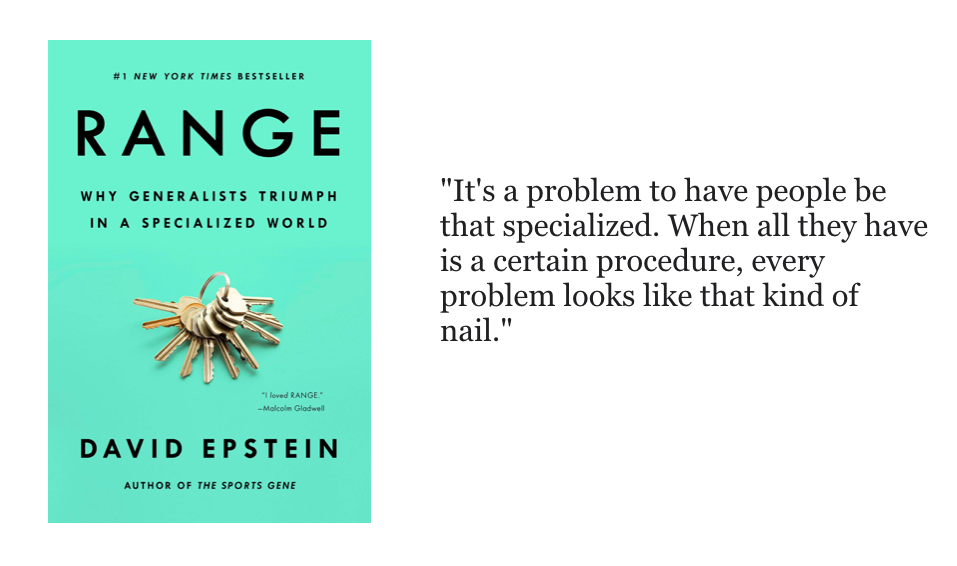
the exceptional GENERALIST
You’ve probably heard proud parents exclaim “my boy is so driven and focused.” Beaming bosses or coaches talking about how galvanized their employees are by their focused contributions to an overall goal. Academics boasting about how there can be no more in-depth expert in the world about a particular, narrowly-defined universe (so narrow, it renders that form of mastery almost meaningless). Traditional society lauds the specialist.
By contrast, our most revered futureproofers actually cross domains so fluidly, it’s tough to understand sometimes what single area they are expert in.
Perhaps you know these people, core to their DNA is embracing such a wide variety of experiences and perspectives. They can tell more interesting and better stories because they have mastered the powers of synthesis vs. mere analysis. They never feel quite finished in ther learning and development, making them intensely more interesting to media, their staff and the occasional CEO, as sources of new stimulation and role models. Their conversations are more sprightly as they are more easily able to make connections between different arenas of life that may be specifically interesting to the listener.
Consider history’s elite generalists:
- Aristotle’s ease in moving across linguistics, logic, ethics, politics, physics, biology & zoology
- Michelangelo‘s fluidness of skill across painting, art, sculpture & architecture
- Marie Curie‘s seamless understanding of physics, chemistry, math, medicine & people
- Charles Babbage’s and his punch cards, predecessors to computers, was inspired by his knowledge of the silk-weaving industry
- Henry Ford’s car manufacturing assembly line was inspired by his related understanding Singer sawing machines & meatpacking plants
- Steve Jobs’ ability to build computers, hardware and platforms that “think differently” was heavily informed by his experience in liberal arts, humanities and typography in his teens and early twenties
- Elon Musk’s intensity in combining a solid underpinning and passion for physics, space, engineering, programming, design, manufacturing, and business to create several multibillion-dollar companies
Perhaps you are one of them, here’s a test to assess.
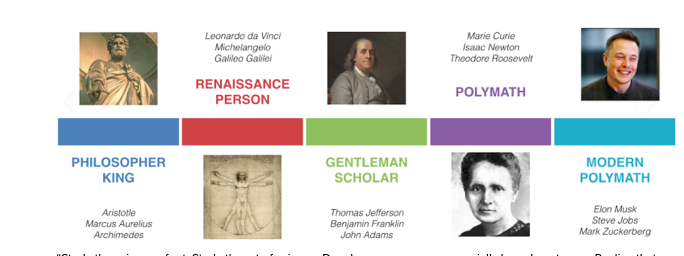
A NEW LEXICON IS REQUIRED
“Jack (or jill) of all trades” is oftentimes used in a half-demeaning way in describing many of these type of unfocused generalists, usually caveated by the additional phrase “master of none”. Apparently, it’s not just restricted to the Western world.
The Chinese muse, “周身刀,无张利 (equipped with knives all over, yet none is sharp)”. Estonians barb, ““Üheksa tehingut, kümnes – nälg. (nine trades, the tenth one — hunger)”. Greeks opine, “Πολυτεχνίτης και ερημοσπίτης (“A man of many crafts and a deserted home”)”. Globally, we generalists have a perception issue.
We need a new vernacular to describe the people that business really needs for the uncertain future:
- Renaissance men and women (talent and knowledge in many different fields of study)
- Polymaths (wide-ranging knowledge or learning)
- Decathletes (versed in 10 different sports)
- Multipotentialites (many different interests and creative pursuits in life)
- Ambi- and multi=dextrous (the ability to do more than two to three things at once)
- Factotums (a person having many diverse activities or responsibilities)
- Pantologists (taking a systematic view of all human knowledge)
- Comb-shapeds (broad based with multiple expertise areas)
- Multi-hyphenates ( a person with multiple hyphens to describe their professions e.g. singer-songwriter-producer)
We’ll add to the new lexicon by now calling them futureproofers – people who see and envision the future by having fluency in multiple lenses (the workplace, the strategy sphere, operations & technology, the marketplace, innovation and the future). We’ve attached the set of six sources of skills below that a rising tide of futureproofers is bringing to their change imperatives. Generalists see the forest through the trees and connect dots. specialists see tree (or worse still bark) and draw straight lines.
COMBINING ALL THESE GENERALIST SKILLS INTO A PRACTICE BEYOND INNOVATION
Coming full circle to our main argument, we believe the innovation industry as its currently constituted is way too specialized to be able to acheive great results.
Innovation, and its methods preached by its boutique firms, futurist research shops and R&D departments, have structures that are too siloed, mandates that are too restructive and talent that are too dogmatic and tribalized. Without a fulsome understanding of what makes innovation & change really tick, it is playing a blood sport with one hand tied behind its back.
Our supposition is that people tasked with any type of innovation & change need to be fluent, conversant and considerate of 6 different levers of future proofing arenas. And if they can’t or won’t build a personal competency in all areas , then at least they should surround themselves and respect the skills of people that can buttress their skills and mindset gaps.
In today’s market, who steps back? Innovation leadership has grown up in parallel silos of design thinking, strategy, creativity, idea generation, engineering and exponentialism. These seed have been effectively planted to address on a spot basis innovation requirements as they rose. What we now need is a perspective and vantage point that integrates emerging trends from multiple sources into one clear call to action. The best change leaders have generalist command of there following futureproofing areas are:
I. Business Transformation & Digital Process/Experiences– being able to fluidly understand company-wide change, business process and linkages between technology & digital levers of transformation and impact.
II. Talent Transformation & Leadership Change – having an understanding of the Future of Work, the importance of culture, purposeful & adaptive leadership and the right people-based conditions , incentives, skills and workplace to pull transformation off effectively & efficiently
III. Deep Marketplace Understanding & Growth Engineering – embracing a mindset that puts the voice of the customer at the centre of change decisions and is able to access & filter that insight into strong brand resonance, better customer engagement practices and scalable growth hacks.
IV. Applied Innovation, Product & Portfolio Development – building an arsenal of applied innovation routes to market, schools of thought and management best practices, that deliver more successful new and varied products, services and ventures.
IV. Futuremapping Trends & Emerging Tech – being able to forecast and map where the future of macroeconomic, geo-political, cultural and technological changes are going, internalize implications for a particular organization and accelerating roadmaps for change that meet that timing.
VI. Business Models & Ecosystem Building – understanding the how, what and whys businesses can change or add to the way they operate and building out collaborations, open innovation, co-creation and new pathways to partnership and solution building.
We explore many of these skillsets and sub-skill sets in our Next30 futureporoofing listings.
The Reason We’re Excited About This…
“
We are mapping a new school of innovation++ leadership that maps to how generalists think and operate …
… one of our lead conclusions on why organizations stagnate is focused on their lack of orgnaizational generalism.
Companies, like people, fall back on practices and thinking that get very specific, particularly in established markets and incumbent companies:
– two of the top four innovation barriers are “resistant company culture” and “poor transformational leadership” – both somewhat attributable to a lack of generalism (Source: Wikibrands)
– the top two most transformative impacts of Artificial Intelligence/ A.I. make up for an institutional lack of generalism : #1 pattern recogni1on/highligh1ng non-obvious data rela1onships (58%) #2 augmented intelligence/decision support (36%) (Wikibrands)
– 88% of CEOs know they need to organizationally get closer to the customer and away from specialized internal orienations (McKinsey)
We are looking forward to spreading our new school of change thought more in spirit for the generalist tenor of the year 2020.
Sean Moffitt & Andrea Kates, F:N Co-founders
Sponsor the Foresight
Breakthrough industry thought leadership
Inbound content & marketing
Leadership & staff training
Innovation & strategic foresight
Access to a network of global experts

Sean Moffitt
Co-Founder, Futureproofing : Next / MD - Wikibrands
Sean is a driving force behind F:N balancing out broad expertise in: business transformation & emerging tech, vision & strategy, brand & customer, talent & culture, and trends & applied innovation, to help companies deliver “innovation you can take to the bank”
As a former Fortune 500 executive, CMO, incubator executive counsel and four-time startup founder, Sean bridges large, scaling and startup culture & practices. He is a global thought leader in company innovation, author of Wikibrands and 16 marketplace studies. and has helped spearhead growth and transformation of over 200+ clients around the world.
Get the Future in Your Inbox
We’re giving change agents, innovators, curiosity seekers and business decision makers the foresights, tools and news to help their organizations grow and adapt to change.
Join thousands of global leaders and receive our latest vault of intelligence .., and take innovation to the bank.

